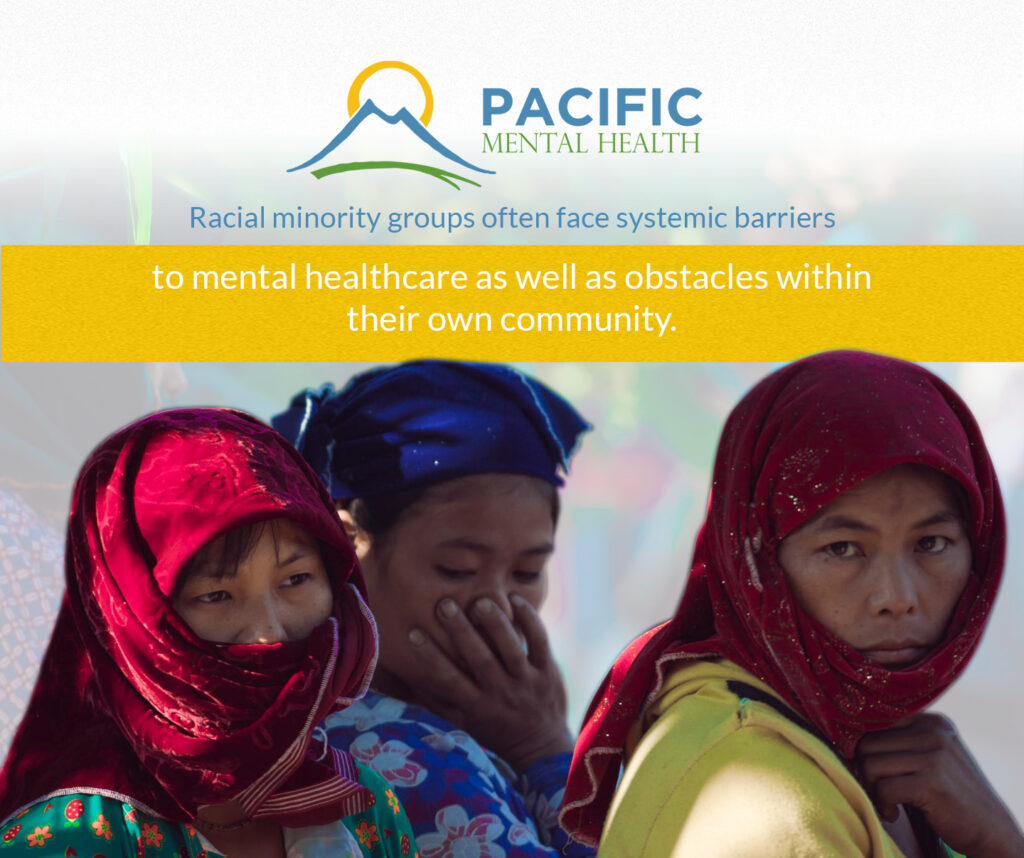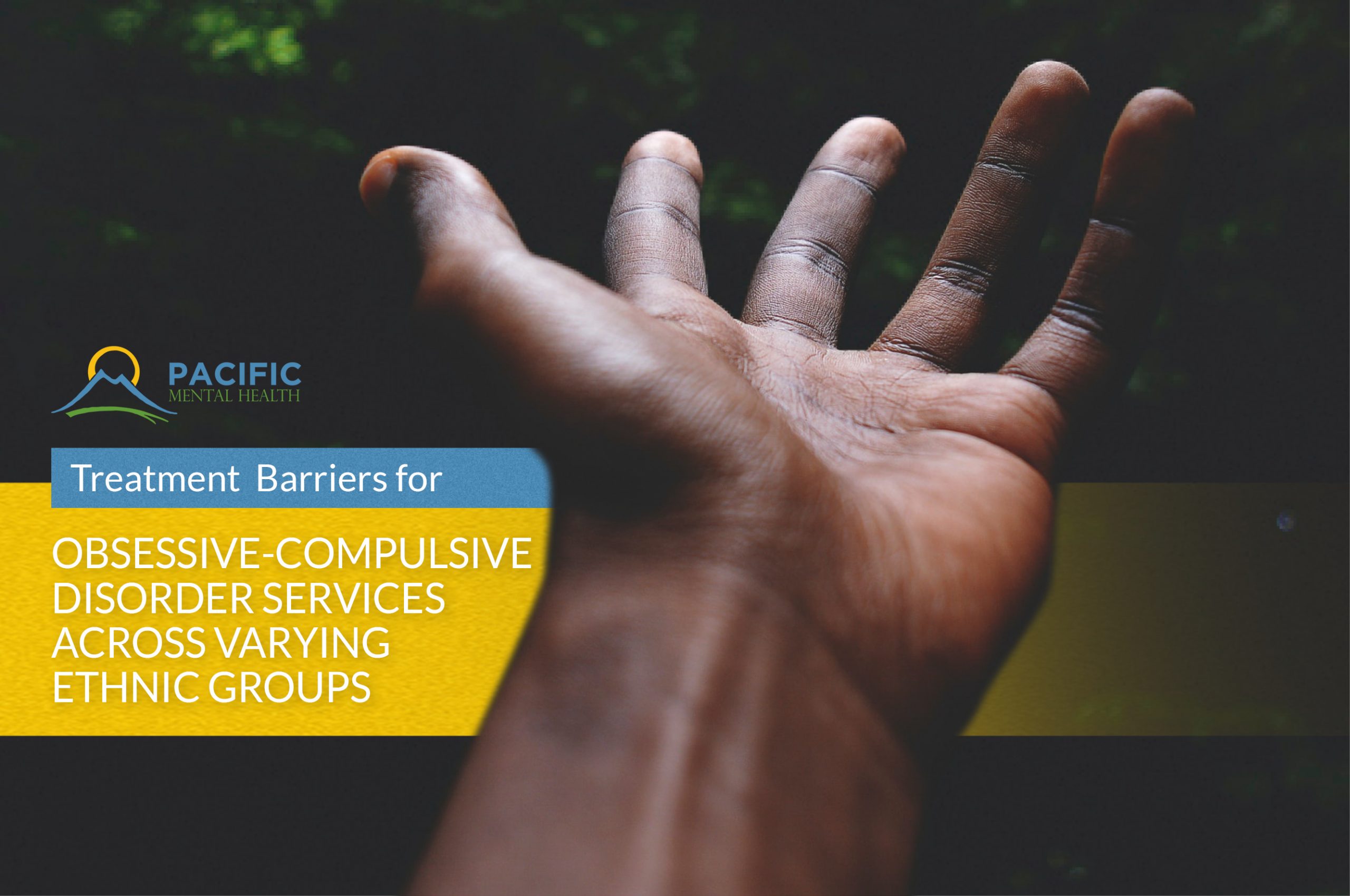While lifetime prevalence rates for obsessive-compulsive disorder in children and adolescents is roughly proportionate across ethnic groups and treatment for the disorder offers equal benefit, individuals with a minority background continue to be misrepresented in clinical settings. Kolvenbach, Fernandez de la Cruz, Mataix-Cols, Patel, & Jassi’s (2018) article entitled Perceived treatment barriers and experiences in the use of services for obsessive-compulsive disorder across different ethnic groups: a thematic analysis, seeks to identify the various barriers that minority groups face in seeking mental health treatment as compared to those from white backgrounds.
To further investigate this question, Kolvenback, et al (2018) conducted a study based in the United Kingdom, which was comprised of a convenience sample of ten parents from white backgrounds and ten parents from ethnic minority backgrounds. Individuals from ethnic minority groups included five Black African participants, one Malaysian participant, one Indian participant, one Iranian participant, one Pakistani participant, and one Black Caribbean participant. A semi structured interview process was implemented which was comprised of a series of open-ended questions aimed at evoking parents’ experiences with potential barriers. Kolvenback, et al (2018) outlined the potential barriers to include “lack of information, mistrust in the mental health system, financial problems, stigma, culture, and ethnicity” (p. 100). Additional follow-up occurred in which parents were asked to elaborate on their experiences and offer insight into whether they felt their opinions were representative of the ethnic group they identified with.
While there are certainly barriers that are shared across cultures, individuals who represent an ethnic minority face additional and significant obstacles that may make it more difficult in accessing treatment.
Results highlighted common themes shared by participants across all represented cultures. As Kolvenbach, et al (2018) asserts, “one of the most prominent barriers to accessing help was a lack of knowledge of and information regarding mental health issues in general, and OCD specifically, both within the participants’ communities and from their schools and health providers” (p. 101). Additional barriers across cultural backgrounds included minimal public health system resources which contributed to understaffed clinics, extended wait times within the referral process, and significant travel in order to access services. Transport time contributed to the inaccessibility of services for many participants who either had to take time off work or who did not have the means to travel long distances.
This study also identified themes that were specific to participants who represented the ethnic minority group, which included stigma, shame, and denial. Racial minority groups often face systemic barriers to mental healthcare as well as obstacles within their own community. Kolvenbach, et al (2018) found that “participants were especially worried about what other people in their community might think and how they might treat the child if they found out about their mental health issues” (p. 102). Stigma from their community often lead to shame about their child’s mental health illness and, in some cases, resulted in denial of symptoms. Kolvenback, et al (2018) also highlighted additional studies that have measured cultural perception and acceptance of mental illness in general and state that within certain groups, “perceived stigma was a major concern when dealing with mental health issues within the community”(p. 100).

In conclusion, this study explored barriers to treatment that all parents experienced, as well as those specific to ethnic minority groups. While there are certainly barriers that are shared across cultures, individuals who represent an ethnic minority face additional and significant obstacles that may make it more difficult in accessing treatment. The article concludes by urging clinicians and policy-makers to be aware of the disparity between patients and offer support interventions to mitigate these barriers.
As an intern therapist, I believe that it is imperative to understand a few basic truths about the current state of our health care and mental health care system. Racial and ethnic minority groups have been historically underrepresented in clinical settings and continue to face obstacles in obtaining the mental healthcare services they are entitled to. Although we still have a long way to go, research has finally begun to examine the barriers that various minority groups face in seeking and accessing services. Perceived treatment barriers and experiences in the use of services for obsessive-compulsive disorder across different ethnic groups; a thematic analysis, identifies various barriers including a lack of knowledge, which are specific to specialist services for obsessive-compulsive disorder, however additional barriers such as a general mistrust for the health care system and systemic discrimination speak to a broader and more pervasive issue. Undoubtedly, minority groups face a plethora of obstacles that can lead to unmet mental health needs. As clinicians, it is our job to not only be aware of this disparity but to also provide support services that overcome these barriers.
References:
Kolvenbach, S., Fernandez de la Cruz, L., Mataix-Cols, D., Patel, N., & Jassi, A. (2018) Perceived treatment barriers and experiences in the use of services for obsessive-compulsive disorder across different ethnic groups: a thematic analysis, Child and Adolescent Mental Health, 23(2), 99-106
If you, or someone you know, is coping with obsessive compulsive disorder, or other mental health issues, Pacific Mental Health therapists and counselors are available to help. Pacific Mental Health has a diverse team of therapist from various backgrounds and expertise. We offer sliding scale pricing to patients without insurance to provide affordable mental health care. Schedule an appointment or learn more.





0 Comments